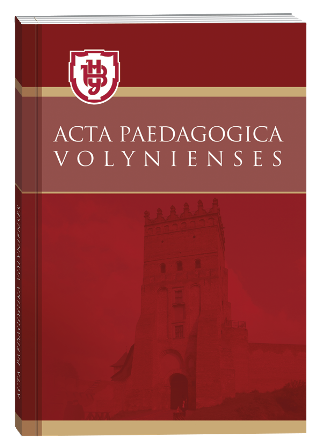LANGUAGE PROFESSIONAL ACTIVITY AS AN INTEGRATION OF OFFICIAL-BUSINESS, SCIENTIFIC AND CONVERSATIONAL STYLES
DOI:
https://doi.org/10.32782/apv/2025.2.20Keywords:
language of professional communication, language-professional activity, language style, official-business language style, scientific language style, colloquial language styleAbstract
The article explores professional language as a complex and multi-level sociolinguistic phenomenon formed at the intersection of the language system and social practices. It examines its specificity in the context of modern Ukrainian literary language and its connection with functional styles, particularly scientific, official-business, journalistic, and colloquial. The integration of styles ensures accuracy, logic, and accessibility of information presentation, which is an important factor in successful professional communication. Professional language is presented as an independent form of linguistic practice with its own structural and semantic organization, while closely interacting with the norms of the literary language. The author distinguishes between the terms «professional language» and «professional speech» as nonidentical concepts: the former refers to the linguistic system inherent in a particular field, whereas the latter refers to the realization of this system in specific communication situations. The focus is on the main components of professional language: terminology, professional clichés, syntactic constructions, established forms of politeness, as well as the role of phraseologisms and metaphors that ensure precision and expressiveness in professional communication. Special attention is given to metaphorization in professional speech as a tool for cognition, explanation, and structuring of complex concepts. In this context, metaphor performs cognitive, communicative, and sociocultural functions, contributing to effective information exchange among members of professional communities. The dynamic nature of professional language is also emphasized, as it constantly evolves under the influence of social, cultural, and technological transformations. This necessitates continuous monitoring of changes, adaptation of language norms, and rethinking the role of linguistic competence in professional activity.
References
Болотнікова А. П. Комунікативно-прагматична категорія ввічливості й поняття соціальної та психологічної дистанції. Науковий вісник Міжнародного гуманітарного університету. Сер.: Філологія. 2019. № 38. Том 2. С. 63–65.
Вовк О. Б. Ділова комунікація: навч. посіб. Львів : Вид-во Львів. політехніки, 2021. 182 с.
Загнітко А. П., Данилюк І. Г. Українське ділове мовлення: професійне й непрофесійне спілкування. Донецьк : ТОВ ВКФ «БАО», 2004. 480 с.
Карач Н. М. Формування мовної особистості в сучасному освітньому просторі. Мова й література у вимірах сьогодення: мовознавчий та лінгводидактичний аспекти: Матеріали ІV Всеукраїнської науково-практичної конференції педагогічних, науково-педагогічних працівників та студентів (м. Чернігів, 21–22 лютого 2024 р.). Ніжин: НДУ ім. М. Гоголя, 2024. С. 172–174.
Кривич Н. Ф. Культура професійного спілкування та мовна культура як шлях до самовдосконалення фахівця. Науковий часопис НПУ ім. М. П. Драгоманова. Cерія 8. Філологічні науки (мовознавство і літературознавство). 2017. Вип. 7. С. 79–84.
Сіранчук Н. М. Формування лексичної компетентності в учнів початкових класів на уроках української мови. Культуромовна особистість фахівця у ХХІ столітті: збірник матеріалів ІІ міжнародної науково-практичної конференції (м. Суми, 6 грудня 2018 року). Суми : Видавництво СумДПУ ім. А. С. Макаренка, 2018. Випуск 2. С.47–52.
Тимкова В. А., Марцінко Т. І., Чечель О. М. Українська мова та культура мовлення : навч. посібн. Вінниця : РВВ ВНАУ, 2012. 333 с.
Шавкун І. Г. Ділова комунікація: сутність та типологізація. Гуманітарний вісник ЗДІА. 2009. Випуск 38. С. 67–74.
Шевчук С. В. Українське ділове мовлення. К. 2000. с. 474.
Шульська Н. М., Громик Л. І., Кевлюк І. В. Орфографічна культура сучасної ділової комунікації: помилкові явища писемного мовлення. Вчені записки ТНУ імені В. І. Вернадського. Серія: Філологія. Журналістика. Том 35 (74). № 1, 2024. Частина 1. С. 80–85.







